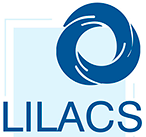Maternal and child health Perceptions and economic Incentive effects in the Altos of Chiapas, Mexico: A post-Prospera analysis
DOI:
https://doi.org/10.19136/hs.a23n1.5705Abstract
Objective: To analyze the perceptions of indigenous women and healthcare personnel in the Altos de Chiapas after Prospera, aiming to shed light on how the program changed maternal and child health care, specifically in relation to the presence or absence of economic incentives.
Materials and Methods: Grounded in grounded theory, the study utilized nine focus group interviews with women (54 participants) and nine semi-structured interviews with seven nurses and two doctors.
Results: The relationship between women and healthcare personnel within the Prospera framework was perceived as an obligation driven by economic incentives, rather than being viewed as shared responsibility. Intervention topics, such as health orientation talks and medical consultations that required attendance at the medical unit, saw a decrease in participation by most women after the program concluded. This shift in dynamics suggests that the relationship built around economic incentives failed to foster sustainable shared responsibility in maternal and child health care after Prospera concluded.
Conclusions: In the Prospera program, advantages were observed, such as maternal health monitoring, health talks, and the provision of vitamin supplements. However, the lack of effective shared responsibility and the perception of obligation conditioned by economic incentives influenced the decrease in attendance at medical units and the adoption of preventive care practices, potentially minimizing all the benefits gained. This finding emphasizes the importance of designing social interventions that go beyond mere obligation and promote active and sustainable participation in maternal and child health care.
Keywords: Maternal and child health; Social program; Economic; Incentive.
Downloads
Downloads
Published
Issue
Section
License
Copyright (c) 2024 Horizonte Sanitario

This work is licensed under a Creative Commons Attribution-NonCommercial-ShareAlike 4.0 International License.





























